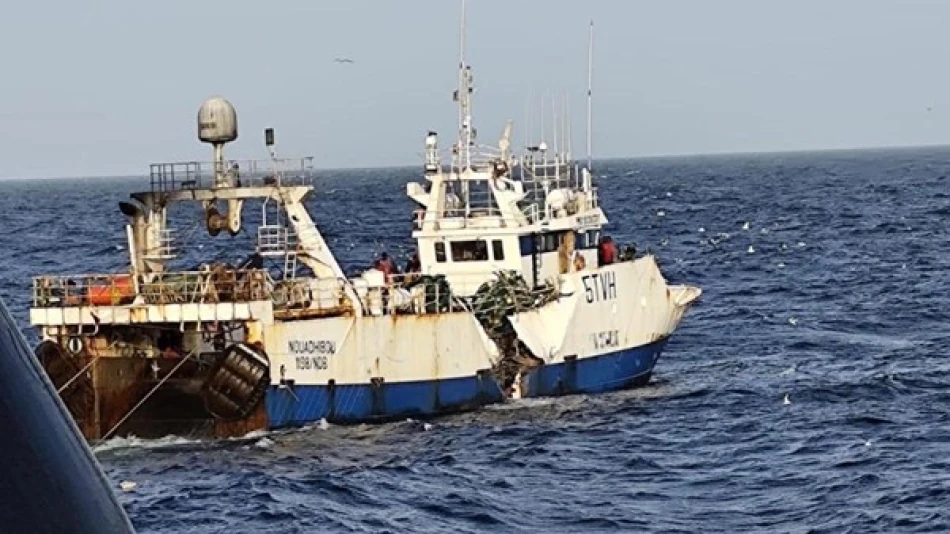
Maritime Tragedy Off Mauritania: Survivors Sought After Vessel Collision
Five Mauritanians Missing After Fatal Fishing Vessel Collision Off West African Coast
A devastating collision between two fishing vessels off the coast of Mauritania has left five Mauritanian crew members missing and one ship at the bottom of the Atlantic. The Friday incident highlights the dangerous conditions faced by fishing fleets operating in West African waters, where Spanish and international vessels increasingly compete for dwindling fish stocks in one of the world's most productive fishing zones.
The Collision and Rescue Operation
The Spanish maritime rescue service confirmed Saturday that the fishing vessels "Right Well" and "Tafra 3" collided in Mauritanian waters on Friday. The impact proved catastrophic for the Tafra 3, which sank with 26 crew members aboard.
Rescue operations managed to save 21 people, including three Spanish nationals, according to Spanish maritime authorities. However, five Mauritanian crew members remain unaccounted for, prompting ongoing search efforts in the challenging Atlantic waters off Mauritania's coast.
Spain's Fishing Presence in West African Waters
The incident underscores Spain's significant fishing operations along the West African coast, particularly through vessels registered in Galicia, the northwestern Spanish region that confirmed the Tafra 3's sinking. Galician authorities stated that the rescued crew members, including the three Spanish nationals, successfully reached shore.
Spanish fishing fleets have operated in Mauritanian waters for decades under bilateral fishing agreements, targeting species like octopus, sardines, and other commercially valuable fish that have become increasingly scarce in European waters due to overfishing and climate change.
Dangerous Waters and Growing Risks
The collision highlights the inherent dangers of industrial fishing operations in busy maritime corridors. West African waters see heavy traffic from local artisanal fishing boats, international commercial vessels, and cargo ships, creating complex navigation challenges.
Mauritania's exclusive economic zone represents some of the most productive fishing grounds globally, thanks to the nutrient-rich Canary Current system. This abundance attracts fleets from across Europe, Asia, and other regions, intensifying maritime traffic and potential collision risks.
Economic and Diplomatic Implications
Such incidents can strain the delicate fishing partnerships between European Union nations and West African countries. Spain relies heavily on access to Mauritanian waters to supply its domestic seafood market and maintain its position as one of Europe's largest fishing nations.
The search for the missing Mauritanian crew members will likely involve both Spanish and Mauritanian maritime authorities, testing the coordination mechanisms established under existing fishing agreements. The outcome may influence future negotiations over fishing quotas and safety protocols in these shared waters.
Most Viewed News

 Layla Al Mansoori
Layla Al Mansoori






